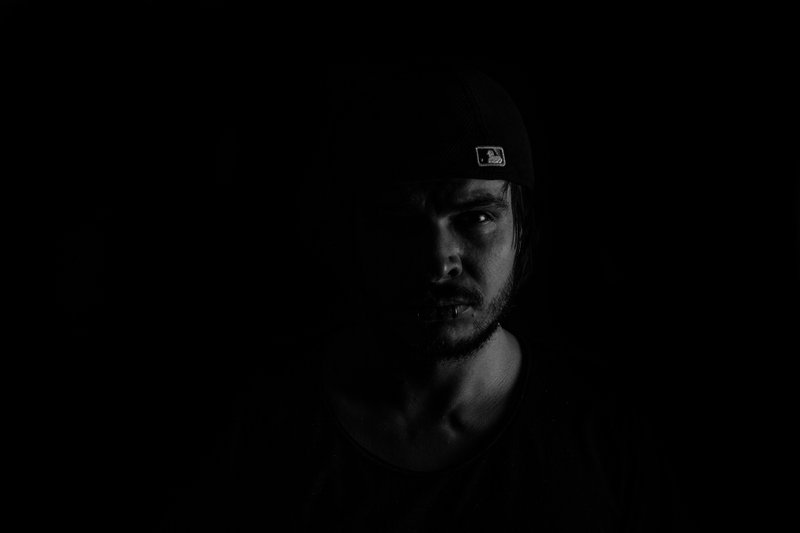How Your Sleep Posture Can Impact Hormone Levels Overnight
Most guys think boosting testosterone requires intense workouts or expensive supplements. But here’s a secret few know: your sleep position directly affects your testosterone levels. Yes, how you sleep could be silently sabotaging your manhood.
Why Testosterone Matters
Testosterone fuels your sex drive, energy, muscle growth, confidence, and performance. Low T means low motivation, weak erections, and poor recovery. And the majority of testosterone production happens while you sleep—especially during deep REM cycles.
How Sleep Quality Affects Testosterone
Studies show that men who sleep fewer than 6 hours per night have dramatically lower testosterone levels than those who get 7–9 hours. But it’s not just about duration. Sleep posture plays a subtle yet powerful role in hormone production, oxygen flow, and recovery.
The Best Sleep Position for Testosterone
Experts agree: sleeping on your back (supine position) is the best for hormonal balance. Here’s why:
- Promotes better breathing and oxygen delivery
- Supports spinal alignment, reducing stress and cortisol
- Improves testicular cooling, which is vital for hormone production
- Enhances REM sleep quality by minimizing movement
Why Testicle Temperature Matters
Your balls aren’t just there for decoration—they’re the factory for testosterone. And like any high-performance machine, they need the right temperature. Sleeping on your back allows your testicles to hang freely, staying cool and productive. On your stomach? They’re squished, heated, and stressed.
Worst Sleep Position for Testosterone
Stomach sleeping is the worst offender. It raises body temperature, puts pressure on your groin, and can even restrict blood flow. Side sleeping is neutral—better than stomach, but not as good as back.
Signs Your Sleep Is Sabotaging Your T Levels
- You wake up groggy even after 8 hours
- Your morning wood is inconsistent or gone
- You feel low energy, moody, or unmotivated
- You snore heavily or breathe through your mouth
If this sounds familiar, it’s time to optimize your sleep—not just when you sleep, but how.
How to Transition to Back Sleeping
Changing sleep habits takes time, but here’s how to train your body:
- Use a pillow under your knees to reduce lower back strain
- Place cushions beside your torso to prevent rolling over
- Wear a sleep mask and earplugs for deeper rest
- Track your sleep stages with a smart device or app
Other Sleep Tips to Boost Testosterone
In addition to your position, these hacks help skyrocket T levels:
- Keep your room cool (65–68°F)
- Avoid screens at least 1 hour before bed
- Don’t eat large meals late at night
- Limit alcohol and caffeine intake
Supplements That Support Testosterone While You Sleep
Sleep is your anabolic window. Support it with natural supplements like:
- Magnesium: Calms the nervous system and boosts deep sleep
- Zinc: A core mineral for testosterone production
- Vitamin D: Regulates hormone levels, especially when paired with sleep
- Ashwagandha: Reduces cortisol and enhances recovery
Real-Life Results From Sleep Optimization
Many guys overlook sleep position, yet those who make the shift often report:
- Stronger morning erections
- Better stamina and muscle tone
- Higher sex drive and confidence
- Deeper, more refreshing sleep
Combine Sleep Position With a Full Male Upgrade
Your sleep habits are just one piece of the puzzle. For maximum testosterone, combine the right sleep position with:
- A clean, testosterone-friendly diet
- Foods that naturally boost T
- Strength training and regular ejaculation control
- Penis enhancement routines from Supreme Penis
Can Snoring or Sleep Apnea Lower Testosterone?
Yes—and it’s more serious than you think. Sleep apnea disrupts REM cycles, spikes cortisol, and drastically reduces testosterone levels. If you snore heavily or wake up gasping, get a sleep study done. Treating apnea can skyrocket your T levels and improve erectile health.
The Morning Wood Test
One of the simplest ways to gauge your testosterone and sleep health is by tracking morning erections. Waking up with a firm erection is a sign your hormones and nervous system are on point. If you’re not getting morning wood consistently, it could be a sleep position issue—or worse, a hormonal imbalance.
Why Back Sleeping Helps Testicle Health
Beyond hormones, your testicles need space and air. Back sleeping gives them that. It avoids compressing them between your legs or mattress, supports blood flow, and prevents overheating—all of which are crucial for testosterone production and fertility.
Can Changing My Sleep Position Really Help?
Absolutely. Small changes compound over time. Shifting from stomach to back sleeping might not feel like a big deal, but over weeks and months, it supports better rest, hormone balance, and sexual performance.
Final Thoughts
The best sleep position for testosterone is on your back. It enhances testicle cooling, improves circulation, and promotes optimal hormone production. Combine this with a healthy lifestyle and you’ll wake up with better energy, stronger erections, and more masculine power.
Also check out our male health blog for more testosterone-boosting hacks that actually work.
Take Control of Your Hormones Starting Tonight
You don’t need drugs or dangerous injections to reclaim your testosterone. Sometimes, the most powerful upgrade is free—like adjusting your sleep posture. By committing to back sleeping and improving your rest habits, you unlock deeper recovery, higher libido, and sharper mental focus.
Start tonight—switch to your back, cool your room, and track how you feel in the morning. These small actions create massive hormonal ripple effects. Your testosterone, sex drive, and confidence will thank you.
Make sleep your secret weapon. Optimize your position, maximize your masculinity.









